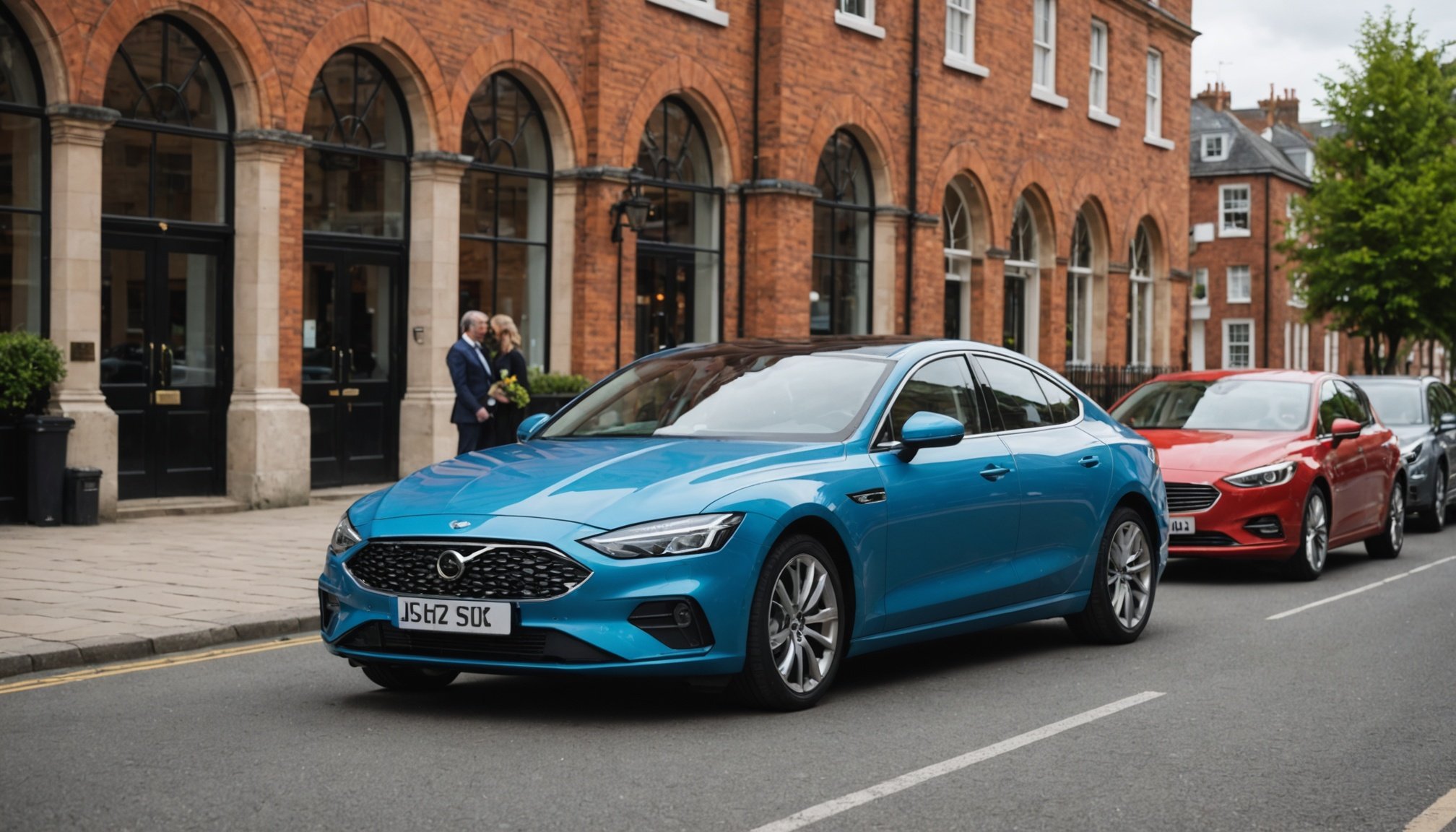Overview of Transitioning from Company Cars to Personal Vehicles
Transitioning from company cars to personal vehicles involves a shift in how one approaches vehicle ownership. This change often arises due to evolving conditions within UK car schemes. Understanding the current landscape of company car schemes is imperative. These programs originally presented appealing tax benefits, but recent adjustments have altered their attractiveness, prompting many to reconsider.
Personal vehicle ownership offers several benefits such as personalisation, flexibility, and a higher degree of control over vehicle choice. Key reasons for making the switch include the ability to select a vehicle that better suits personal needs and preferences, potentially leading to a more enjoyable driving experience.
Have you seen this : The ultimate handbook for choosing the ideal cargo van to meet your uk business needs
Additionally, the financial advantages cannot be understated. Owning a personal vehicle may lead to a reduction in overall costs, especially if one effectively navigates the financial landscape. This includes understanding differences between leasing and purchasing, as well as exploring financing options.
Ultimately, transitioning to a personal vehicle empowers individuals with the liberty to tailor their vehicle to suit their lifestyle. It’s a choice that, while requiring careful consideration, can lead to significant benefits both economically and personally.
Also read : The comprehensive handbook for choosing and installing vehicle lighting that meets uk regulations
Legal Considerations
When transitioning from company cars to personal vehicles, it’s crucial to understand the legal requirements involved. Essential documentation is needed for transferring vehicle ownership. Initially, ensure the completion of a vehicle registration form, commonly the V5C in the UK, to legally register the car under the new owner’s name. This is a vital step in becoming compliant with road regulations.
Furthermore, grasp the relevant taxation laws for personal vehicles. Unlike company cars, personal vehicle owners must handle road tax (Vehicle Excise Duty) themselves. The cost of this tax depends on the vehicle’s emissions and value, so consider this during your planning. Understanding these nuances can prevent unexpected expenses.
Equally important is compliance with UK road regulations throughout the transition. Ensure your vehicle meets MOT requirements, a mandatory test for vehicle safety and emissions. It’s also worth confirming that all insurance policies align with legal standards.
These legal aspects are foundational to ensuring a smooth and compliant switch, safeguarding against potential legal pitfalls. Being informed about vehicle registration and governmental requirements aids in a seamless transition from company to personal car ownership.
Financial Implications
Transitioning from a company car to a personal vehicle involves several financial implications to consider. Understanding the tax implications is crucial, as personal vehicle ownership may result in different tax responsibilities compared to company cars. Former company car drivers need to factor in road tax payments that may have been covered by their employer previously.
Cost analysis between maintaining a company car and owning a personal vehicle can reveal potential savings or expenses. While company cars often come with fixed costs like fuel or insurance covered, personal vehicle owners must brace for varied financial commitments. Analysing ongoing costs such as fuel efficiency, maintenance, and insurance can provide insight.
Potential savings may arise through more efficient personal vehicle choices, e.g., opting for lower-emission cars, which can reduce road tax and fuel costs. Conversely, initial expenses such as down payments or increased insurance premiums must be accounted for.
Comparing overall costs between the company car scheme and personal vehicle ownership offers clarity. A precise financial comparison is necessary to make informed decisions. Evaluating expenses holistically assists in anticipating economic impact and planning accordingly through this transition from a company car.
Insurance Differences
When transitioning from company cars to personal vehicles, one of the primary concerns is understanding the distinctions in vehicle insurance. Unlike company car insurance, where premiums are often bundled within employment benefits, personal vehicle insurance requires individual arrangements. This shift necessitates a strategic approach to evaluating insurance policies that suit personal needs and budgets.
Personal vehicle insurance offers a plethora of choices. To find the best fit, consider factors such as coverage levels, costs, and potential discounts. Comprehensive and third-party coverage options cater to different preferences, so it’s important to weigh these against expected out-of-pocket expenses and risk management.
Key differences lie in how risk is assessed. Personal vehicle insurance often considers factors like driving record, age, and vehicle type more critically than company car insurance. Switching to personal ownership means insurance premiums may hinge more significantly on personal circumstances.
During the transition period, maintaining insurance continuity is crucial to avoid lapses in coverage. Tips for managing insurance include consulting with insurance brokers who can offer tailored advice based on current market trends and comparing offers from multiple providers to ensure you secure the most advantageous policy terms during your transition.
Ownership Options
Transitioning from company cars to personal vehicles calls for a decision on whether to lease or buy. Each option comes with its pros and cons. Leasing typically involves lower upfront costs and offers the latest models with regular upgrades. However, it also means you never truly own the car and may face mileage restrictions, which could hinder long trips.
Conversely, purchasing a personal vehicle allows complete ownership, meaning no recurring monthly payments once fully paid off. It also offers freedom from mileage limits, yet involves a significant initial financial outlay and potential depreciation over time. Balancing these elements is crucial to aligning the choice with your financial health and lifestyle needs.
Exploring financing options, such as bank loans or dealer financing, is essential for those who choose to purchase. Each option varies in interest rates and repayment terms, so understanding these differences is pivotal for economical decision-making.
In assessing ownership models, consider long-term implications such as overall lifetime cost, impact on credit history for financed purchases, and potential resale value. The decision should align with both financial goals and personal preferences, ensuring a smooth and prosperous transition from company vehicles.
Step-by-Step Transition Guide
Taking a systematic approach to transitioning from a company car to a personal vehicle can ease the process significantly. Following a step-by-step guide ensures all bases are covered and helps avoid common pitfalls.
Start by reviewing any existing UK car schemes and their implications for your transition. Make informed decisions about the most suitable ownership options, such as leasing or purchasing. Gather all necessary legal documentation such as the V5C form for vehicle registration and explore financing options to fit your budget.
Next, conduct a detailed cost analysis to understand the financial impact. This includes evaluating insurance differences and managing new policies effectively. Consider personal vehicle insurance premiums, keeping personal factors like driving history in mind to find the best coverage.
Create a comprehensive checklist outlining each step of the transition. This should cover documentation, financial assessments, and booking any required services, like an MOT.
Lastly, explore online tools that assist with budgeting and planning. Utilize resources like financial calculators and insurance comparison sites to inform your decisions. Consulting with a professional can provide valuable insights, helping to ensure a smooth transition.
Tips for a Smooth Transition
Transitioning from a company car to a personal vehicle doesn’t have to be daunting. With proper planning advice and transition tips, you can ensure a seamless changeover. Begin by thoroughly exploring your best practices in advance, focusing on common pitfalls to avoid. For instance, overlooking detailed cost analysis could lead to unexpected expenses later on. By understanding potential challenges, you can strategically prepare for adjustments.
Embrace strategies for smooth adaptation by familiarising yourself with personal vehicle ownership complexities, such as selecting appropriate vehicle insurance and understanding tax implications. Planning insurance differences accurately is key, as personal policies require active management compared to company-bound coverage.
Leverage tools like online calculators to predict costs and create a realistic budget. Consider consulting platforms that offer guidance on financial decisions and leasing options. These practical resources can significantly simplify your transition journey.
Avoid common mistakes by scrutinising each aspect of vehicle registration and financing. Consulting professionals provides valuable insights during this shift. Take it step-by-step and plan each phase intentionally, which enhances the likelihood of an uncomplicated and successful switch to a personal vehicle.
Additional Resources
Transitioning from a company car to a personal vehicle can be made smoother with the right resources. Discovering helpful tools and support organizations can significantly aid in managing this change. Begin by exploring online tools designed for budgeting and planning the transition. Financial calculators can help estimate costs and assess the affordability of different vehicle options. Insurance comparison websites are also invaluable for finding the best personal vehicle insurance deals.
In terms of vehicle finance and insurance, there are comprehensive guides available that break down complex concepts into understandable terms. Websites dedicated to vehicle ownership offer advice on leasing versus purchasing, providing examples of financing options to consider. Consult these resources to make informed decisions with confidence.
Engage with support organizations that specialise in vehicle ownership transitions. These can include motoring associations and finance advisory services. Such organisations often provide contact information and consultancy services to navigate through the nuances of personal vehicle ownership. By connecting with them, you gain access to expert advice tailored to your unique situation, ensuring that you are well-prepared for the transition. Consider reaching out to these bodies for a more personalised guide towards successfully owning your personal vehicle.









